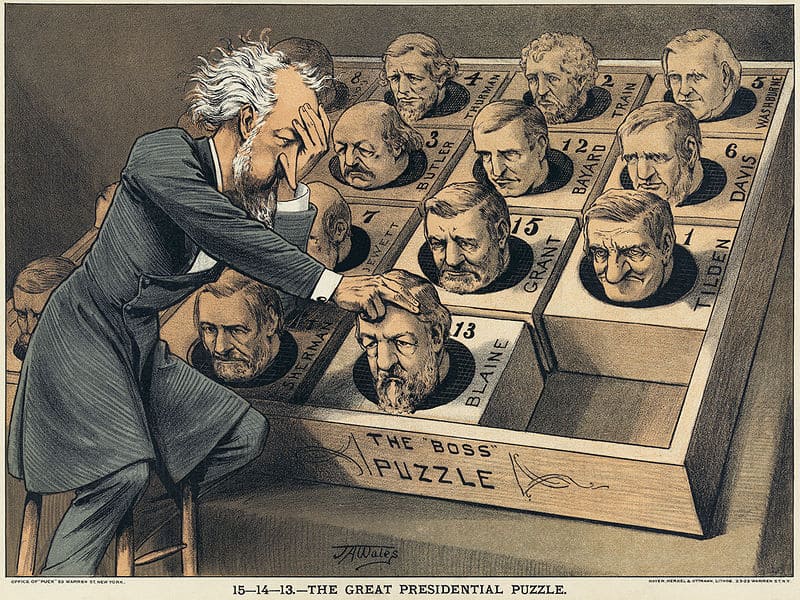
25. The American party system created the means of developing fraudulent elections
The framers of the Constitution did not desire the development of political parties in the United States, believing that they had contributed to the corruption in the British government which had led in part to the American Revolution. The debate over ratification of the Constitution, and how it was to be interpreted led to the development of parties during the second administration of George Washington, which he viewed with dismay. Believing them to be the natural enemy of representative government, Washington took steps to warn his countrymen of their dangers, and in so doing predicted America’s political future.
In 1796, as he was preparing to leave office Washington wrote what he called the spirit of party, “serves always to distract the public councils and enfeeble the public administration. It agitates the community with ill-founded jealousies and false alarms, kindles the animosity of one part against the other, foments occasionally riot and insurrection”. Washington believed and argued that the American government should function without partisan party politics, and doubted that it could function well with the divisions they caused. He remains the only President of the United States to have not been a member of a political party.
Where do we find this stuff? Here are our sources:
“Of Plymouth Plantation 1620 – 1647, by William Bradford”. Samuel Eliot Morison, 1952
“Voting in Early America”. Ed Crews, Colonial Williamsburg Journal. Spring, 2007. Online
“A History of the Constitution of Massachusetts”. Samuel Eliot Morison. 1917
“Religious Tests”. Essay, The Heritage Guide to the Constitution. Heritage.org. Online
“Formation of Political Parties”. Creating the United States, Library of Congress. Online
“The Most Fractured Election”. Fredric D. Schwarz, American Heritage Magazine. February/March, 2000
“The Corrupting of New York City”. Peter Baida, American Heritage Magazine. December, 1986
“First Governor, First Lady: John and Eliza Routt of Colorado”. Joyce B. Lohse. 2002
“Centennial Crisis: The Disputed Election of 1876”. Justice William H. Rehnquist. 2004
“How not to count votes”. John Nagle, Columbia Law Review. 2004
“The Vote That Failed”. S. J. Ackerman, Smithsonian Magazine. November, 1998
“Political Parties”. Article, George Washington’s Mount Vernon. Online

